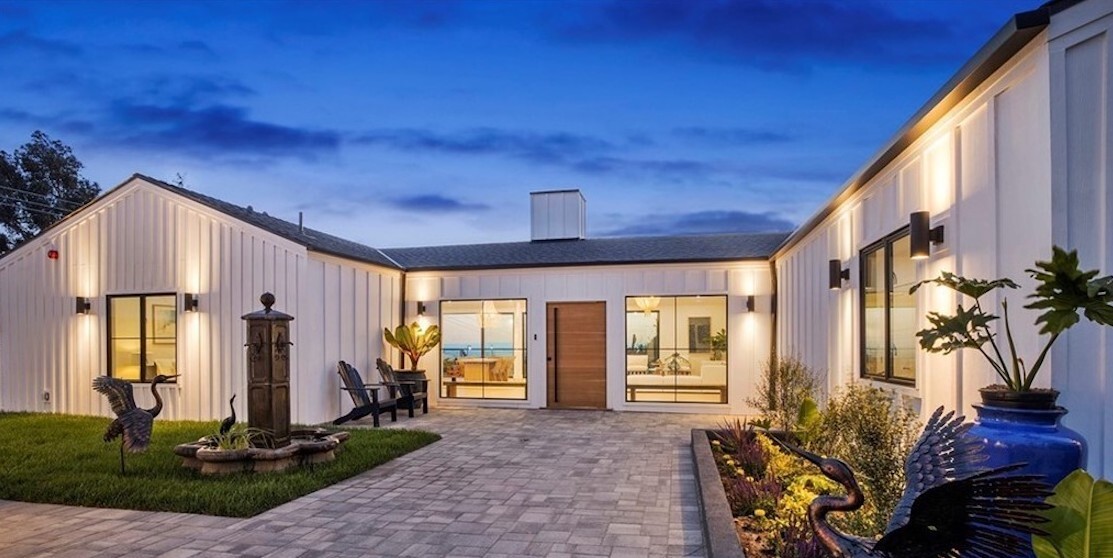Kitsch is figuring out how to showcase its authentic everyday branding through a new content studio-slash-residential home.
The 11-year-old brand sells hair and body products like hair towels, scrunchies, brushes, and sleep products like silk pillowcases and eye masks. Over the last three years, Kitsch has experienced 13x revenue growth, reaching $87 million in 2020 earnings, according to Inc. magazine. Beyond its DTC site, Kitsch products are found in over 8,000 independent retailers, in addition to Walgreens, CVS, Target and Ulta Beauty, among other retailers. Over the past decade, the privately-owned and self-funded company has built up its own vertically integrated business model, which includes owning its means of fulfillment and shipping. This business model is extending itself through Kitsch’s creative side, with the purchase of a property in Malibu in July 2021 as a content studio and event hub.
The L.A.-based brand has over 2 million email subscribers, and approximately 50% of its sales are direct-to-consumer, said Cassandra Morales Thurswell, founder and CEO of Kitsch.
“The Kitsch customer is someone who’s extraordinary, but who also puts their underwear on inside out — [they’re] charmingly flawed and relatable,” she said.
She pointed to the Malibu home, referred to as the “Kitsch Beach House,” as part of an ongoing content strategy demonstrating the integration of Kitsch products into everyday life and customers’ home environments. The house frequently serves as a backdrop to photoshoots and IG Lives from the brand, and as a space to host influencer dinners, events and weekend getaways. It will potentially host consumer-facing opportunities in the future. Thurswell declined to share the purchase price of the Malibu home. According to real estate listing site Zillow, the average Malibu home value is currently $3.7 million.
“We want to invite people in our [influencer] community who know our products to come to the house and see how Kitsch fits into their life,” she said. “We don’t want to only send products and have them post it on Instagram. We want them to see what a weekend looks like when you have Kitsch products with you all day.”
Kitsch has 467,000 Instagram followers and works with macro-influencers like Jamie Kidd (@JamienKidd; 830,000 Instagram followers) and micro-influencers like Steph Alleva Cornell (@CreatingSteph; 1,354 Instagram followers). Morales Thurswell said the brand works with over 100 influencers at any given time, but declined to share how effective influencer and affiliate marketing are at driving sales.
Ad position: web_incontent_pos1
Of course, Kitsch is not the first brand to own a property as a space for content creation and event hosting. As far back as 2016, Revolve had a splashy, summer-long activation called Revolve in the Hamptons, which gathered some of the season’s most prominent “it” girls like Hailey Baldwin Bieber and Nicole Richie. Then there were the plethora of homes and apartments that served as content studios for individual influencers. More recently, TikTokers have taken to renting mansions to be able to work together to create videos. Morales Thurswell said the Kitsch beach house is not a party spot but instead a “reset house,” pointing to the location of Malibu as a respite for hiking, beach activities and general unplugging.
“What Kitsch is doing is very smart, especially as we get back to real life after quarantine. There are so many variables when it comes to in-person experiences. A brand-owned home offers a more controlled environment, ensuring safety and comfort for all,” said Bilal Kaiser, principal of creative and influencer firm Agency Guacamole. “[The house] allows a brand like Kitsch to provide more opportunities to connect and nurture relationships with influencers and editors on an ongoing basis… The downside to this is that the newness and excitement may dissipate as influencers are always looking for the next new thing.”
Morales Thurswell said she was cautious about speaking on the long-term strategy for the Beach House, citing the volatility of events of the past two years. She said that for at least 2022, Kitsch will concentrate on using the house to solidify influencer relationships beyond the transactional nature of gifting. But she also said she felt the opportunities were “endless.”
“Any brand can send free products [to influencers]. But meeting them face-to-face and creating these opportunities for connection [is important]. Kitsch is not a founder-based brand; it’s about our community and [other] people talking about it,” she said.




